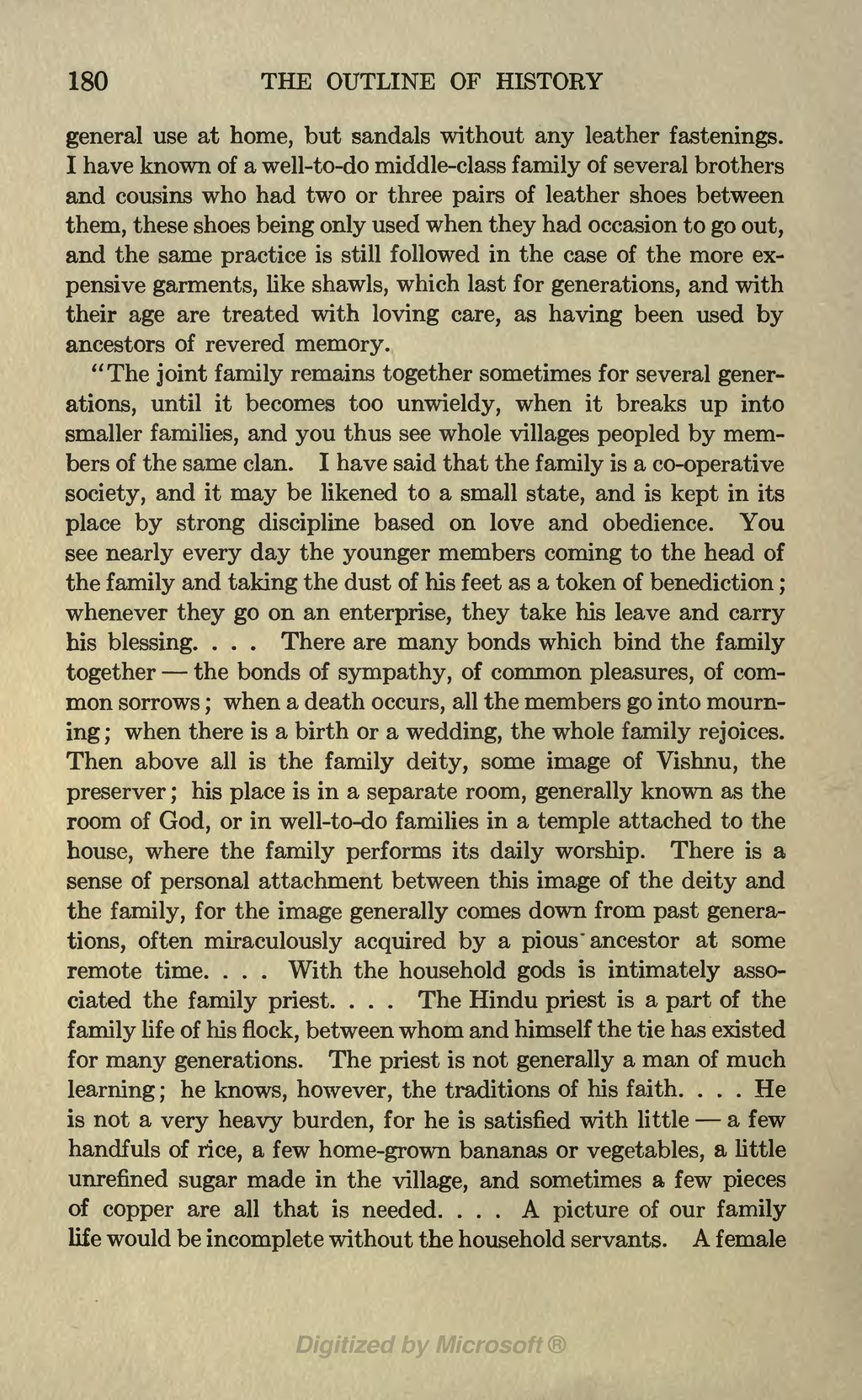general use at home, but sandals without any leather fastenings. I have known of a well-to-do middle-class family of several brothers and cousins who had two or three pairs of leather shoes between them, these shoes being only used when they had occasion to go out, and the same practice is still followed in the case of the more expensive garments, like shawls, which last for generations, and with their age are treated with loving care, as having been used by ancestors of revered memory.
"The joint family remains together sometimes for several generations, until it becomes too unwieldy, when it breaks up into smaller families, and you thus see whole villages peopled by members of the same clan. I have said that the family is a co-operative society, and it may be likened to a small state, and is kept in its place by strong discipline based on love and obedience. You see nearly every day the younger members coming to the head of the family and taking the dust of his feet as a token of benediction; whenever they go on an enterprise, they take his leave and carry his blessing.... There are many bonds which bind the family together—the bonds of sympathy, of common pleasures, of common sorrows; when a death occurs, all the members go into mourning; when there is a birth or a wedding, the whole family rejoices. Then above all is the family deity, some image of Vishnu, the preserver; his place is in a separate room, generally known as the room of God, or in well-to-do families in a temple attached to the house, where the family performs its daily worship. There is a sense of personal attachment between this image of the deity and the family, for the image generally comes down from past generations, often miraculously acquired by a pious ancestor at some remote time.... With the household gods is intimately associated the family priest.... The Hindu priest is a part of the family life of his flock, between whom and himself the tie has existed for many generations. The priest is not generally a man of much learning; he knows, however, the traditions of his faith.... He is not a very heavy burden, for he is satisfied with little—a few handfuls of rice, a few home-grown bananas or vegetables, a little unrefined sugar made in the village, and sometimes a few pieces of copper are all that is needed.... A picture of our family life would be incomplete without the household servants. A female
